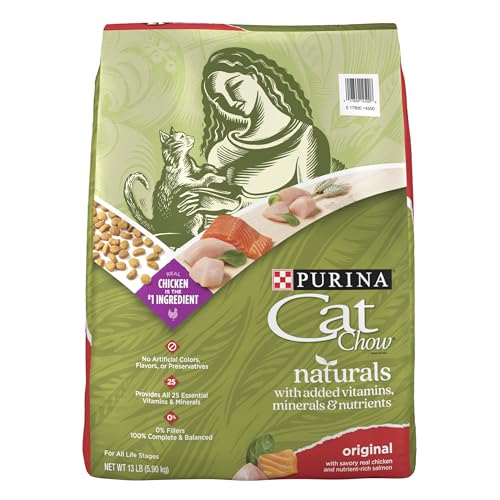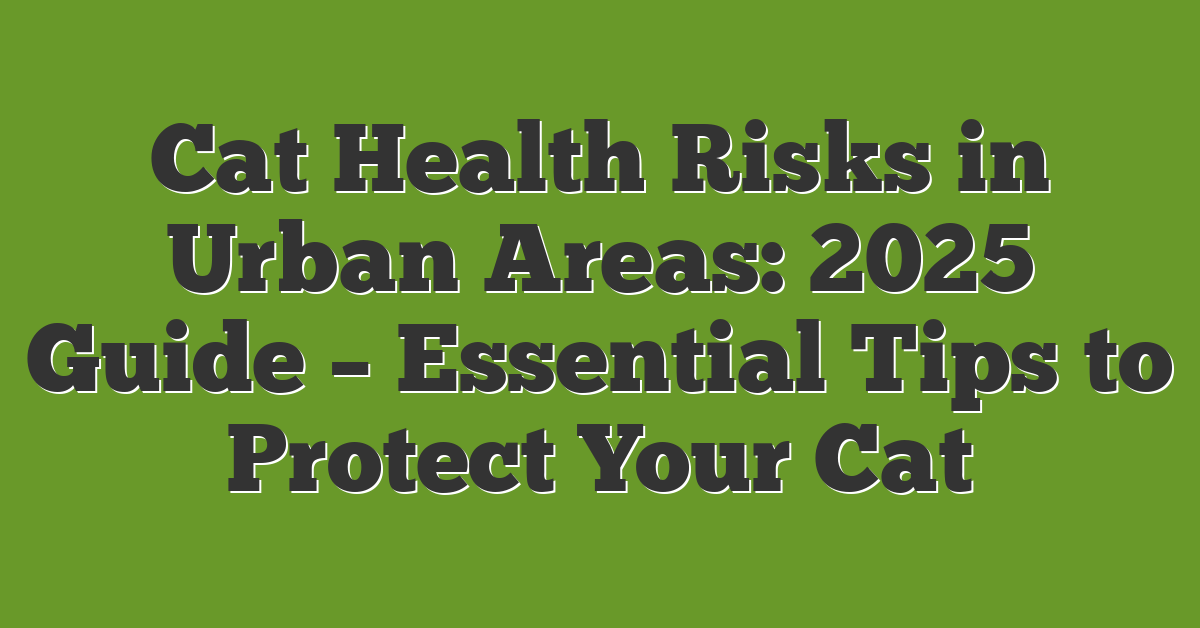The Nutritional Needs of Cats
As a cat lover, you want to make sure that your feline friend is getting all the nutrients they need to stay healthy and happy. Cats have unique dietary requirements that are essential for their overall well-being. Here are some key points to consider when it comes to meeting the nutritional needs of your precious cat:
High-Quality Protein
Cats are obligate carnivores, which means they require a diet rich in animal protein. This is because their bodies are adapted to thrive on a meat-based diet. Protein is necessary for their growth, muscle development, and maintenance of a healthy coat and skin. Feeding your cat a high-quality protein source is crucial for their overall health.
Essential Fatty Acids
Fatty acids, such as omega-3 and omega-6, play a vital role in a cat’s diet. They are responsible for promoting healthy skin, a shiny coat, and supporting a strong immune system. These fatty acids also contribute to the proper functioning of their nervous system. Make sure to choose cat foods that contain optimal levels of essential fatty acids to support your cat’s well-being.
Vitamins and Minerals
Cats require a range of vitamins and minerals to maintain their health. These include vitamin A, vitamin D, vitamin E, vitamin B, calcium, phosphorus, and magnesium. These nutrients are essential for proper growth, bone health, immune function, and overall vitality. Ensure that your cat’s diet includes a balanced mix of vitamins and minerals to support their nutritional needs.
Hydration
Water is vital for cats, just as it is for humans. Cats have a low thirst drive, making it important to incorporate moisture-rich foods into their diet. Wet cat food and access to fresh water throughout the day can help prevent dehydration, promote healthy urinary tract function, and support overall hydration. Keep your cat hydrated by providing them with wet food and fresh water daily.
Remember, providing a balanced and nutritious diet is essential for your cat’s well-being. It is always a good idea to consult with your veterinarian to ensure that you are meeting your cat’s individual nutritional needs. By prioritizing their dietary requirements, you can help keep your furry friend happy and healthy for years to come.
Understanding Sausage and its Ingredients
Let’s delve into the world of sausages and find out if they are a suitable food option for our feline friends. Sausages are a popular food item, loved by many humans for their flavor and convenience. However, when it comes to cats, there are some important things to consider before sharing a sausage with them.
Sausages can be high in fat and sodium, which are not ideal for a cat’s diet. Cats have different nutritional needs than humans and require a specific balance of nutrients to thrive. High-fat foods can cause digestive issues or even lead to obesity in cats. Additionally, excessive sodium intake can put strain on a cat’s kidneys.
It’s also important to consider the ingredients used in sausages. Some sausages may contain spices, seasonings, or additives that are not suitable for cats. Ingredients like onion and garlic, commonly found in sausages, can be toxic to cats and should be avoided.
Processed meats pose additional concerns. Sausages are often made from processed meats, which can contain preservatives and artificial ingredients. These additives may have a negative impact on a cat’s health and could even lead to allergic reactions or gastrointestinal issues.
If you’re considering giving your cat a taste of sausage, it’s best to consult your veterinarian first. They can provide personalized advice based on your cat’s specific dietary needs and health condition. Your vet can guide you in making informed decisions about what foods are safe and appropriate for your furry friend.
While sausages may seem like a tempting treat to share with your cat, it’s important to prioritize their health and well-being. Opting for specially formulated cat food, approved by veterinarians, is the best way to ensure that your cat receives a balanced and nutritious diet tailored to their specific needs.
Can Cats Safely Eat Sausage?
As a cat lover, you might be tempted to share a tasty sausage treat with your furry friend. But before you do, it’s important to consider whether sausages are safe for cats to eat.
Here are a few things you should know:
1. High Fat and Sodium Content: Sausages are often high in fat and sodium, which can be problematic for cats. A high-fat diet can lead to obesity and other health issues, while excessive sodium intake can lead to dehydration and kidney problems. So, it’s best to avoid feeding sausages to your feline friend on a regular basis.
2. Potential Toxic Ingredients: Some sausages contain ingredients like onion and garlic, which are toxic to cats. These ingredients can cause gastrointestinal upset, anemia, or even damage to a cat’s red blood cells. It’s crucial to keep your cat away from any sausages that contain these harmful ingredients.
3. Preservatives and Artificial Additives: Processed sausages often contain preservatives and artificial ingredients that may not be healthy for cats. These additives can be hard for cats to digest and can potentially lead to digestive issues or allergies.
While sausages may seem like a tempting treat, it’s important to prioritize your cat’s health and wellbeing. Instead of giving them sausages, consider offering specially formulated cat food that meets their dietary needs.
When it comes to your cat’s diet, it’s always best to consult with a veterinarian. They can provide guidance on the right foods to feed your feline companion and ensure they receive the proper nutrition they need to thrive.
Remember, your cat’s health should always be your top priority. Opt for cat-friendly foods over sausages to keep your furry friend happy and healthy.
Potential Risks of Feeding Sausage to Cats
As a cat lover and expert, it’s important to be aware of the potential risks associated with feeding sausages to your feline friend. While sausages may be a delicious treat for us humans, they can pose certain health hazards for cats. Here are some risks you should consider before sharing your sausage with your furry companion:
- High Fat and Sodium Content: Sausages are often high in fat and sodium, which can be harmful to your cat’s health. Their delicate digestive system is not built to handle such rich and salty foods, leading to issues like obesity, pancreatitis, and gastrointestinal distress.
- Toxic Ingredients: Some sausages contain ingredients like onion and garlic, which are toxic to cats. Even a small amount of these ingredients can cause serious health problems, such as damage to red blood cells and potential organ failure. It’s crucial to avoid sausages that contain these harmful substances.
- Preservatives and Artificial Ingredients: Processed sausages often contain preservatives and artificial ingredients, which can have negative effects on your cat’s well-being. These additives may lead to allergic reactions, upset stomach, or even contribute to the development of long-term health conditions.
- Imbalanced Nutrition: Cats require a specific balance of nutrients to thrive. Sausages are not a balanced or complete meal for cats. Feeding your cat sausages on a regular basis can lead to nutritional deficiencies and overall poor health.
While it might be tempting to treat your cat to a slice of sausage every now and then, it’s crucial to prioritize their health above all else. Consult with your veterinarian before introducing any human food into your cat’s diet. They can provide guidance on appropriate cat-friendly treats and tailor a diet plan that meets your cat’s unique nutritional needs.
Remember, the best way to show your love for your feline companion is by providing them with a balanced and species-appropriate diet.
Alternatives to Sausage for Treating Your Cat
As a cat lover, you know how much joy it brings to spoil your furry friend with treats. It’s important to remember, however, that not all human foods are safe for your cat to eat. While sausages may be delicious for us, they can pose potential risks to your cat’s health.
But don’t worry! There are plenty of safe and tasty alternatives that you can offer your cat as a special treat. These alternatives will not only satisfy your cat’s cravings but also help maintain their overall well-being. Here are a few options to consider:
- Chicken: Cooked chicken is a fantastic option for treating your cat. It is a lean protein that is both safe and nutritious. Just make sure to remove the skin and bones before offering it to your feline friend.
- Fish: Cats are known to have a natural affinity for fish. Offer your cat small portions of cooked fish, such as tuna or salmon, as an occasional treat. Make sure it’s fully cooked and doesn’t contain any added seasonings or oils.
- Fresh Fruits and Vegetables: Some cats surprisingly enjoy the taste of fruits and vegetables. Offer small pieces of cat-friendly options like steamed carrots, green beans, or even a slice of cucumber. However, avoid offering any fruits or vegetables that are toxic to cats, such as grapes or onions.
- Commercial Cat Treats: There is a wide variety of commercial cat treats available in the market today. These treats are specifically formulated to provide the right balance of nutrients for your cat. Look for treats that are low in fat and sodium, and make sure to check the ingredients for any potential allergens.
Remember, treats should only make up a small portion of your cat’s diet. It’s crucial to provide a balanced and species-appropriate diet as the main source of nutrition. If you have any concerns or questions about what treats are suitable for your cat, consult with your veterinarian. They can provide expert advice tailored to your cat’s specific needs.
Conclusion
Feeding sausages to your cat can pose potential risks to their health. Sausages are often high in fat, sodium, and contain toxic ingredients that can lead to obesity, pancreatitis, and gastrointestinal distress. It’s important to prioritize your cat’s well-being by providing them with a balanced and species-appropriate diet.
Fortunately, there are safe and nutritious alternatives to sausages that you can offer to your feline friend. Cooked chicken and fish are excellent sources of protein that can satisfy their cravings. Fresh fruits and vegetables can also be a healthy addition to their diet, providing essential vitamins and minerals.
Remember, when it comes to treating your cat, it’s always best to consult with a veterinarian. They can offer expert advice on suitable treats for your cat and ensure that their dietary needs are met. By making informed choices about what you feed your cat, you can help them live a happy and healthy life.
So, the next time you’re tempted to share a sausage with your furry companion, opt for a safer and more nutritious alternative. Your cat will thank you for it!
Frequently Asked Questions
Q: Why shouldn’t I feed sausages to my cat?
A: Feeding sausages to your cat can be risky due to their high fat, sodium, and potentially toxic ingredients. This can lead to health issues like obesity, pancreatitis, and gastrointestinal distress in cats.
Q: What are some alternatives to sausages for treating my cat?
A: Safe and nutritious alternatives to sausages for treating your cat include cooked chicken, fish, fresh fruits and vegetables, and commercial cat treats. These options provide a balanced and species-appropriate diet for your cat.
Q: Should I consult with a veterinarian for advice on suitable treats for my cat?
A: Yes, it is recommended to consult with a veterinarian for expert advice on suitable treats for your cat. They can guide you in selecting treats that are safe, healthy, and tailored to your cat’s specific needs.

















